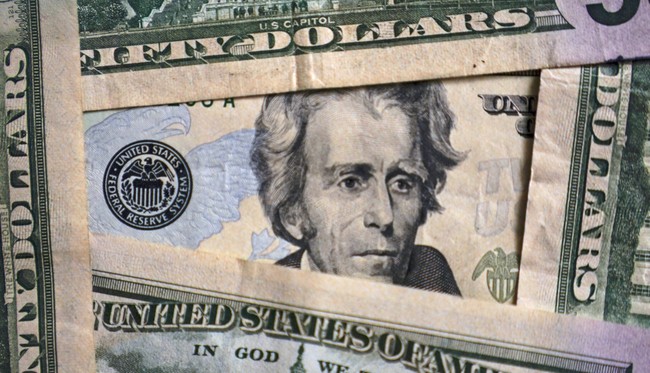The Federal Reserve took aggressive action Wednesday and lowered interest rates by a full half a percentage point. The stock market reacted positively to the move, with the Dow Jones Industrial Average up around 148 points as of this writing (and up higher than that in the moments after when the move was announced).
It’s the first cut in four years:
The Federal Reserve on Wednesday enacted its first interest rate cut since the early days of the Covid pandemic, slicing half a percentage point off benchmark rates in an effort to head off a slowdown in the labor market.
With both the jobs picture and inflation softening, the central bank’s Federal Open Market Committee chose to lower its key overnight borrowing rate by a half percentage point, or 50 basis points, affirming market expectations that had recently shifted from an outlook for a cut half that size.
BREAKING: The Federal Reserve has cut interest rates by 50 basis points in their first rate cut since March 2020.
This officially marks the most surprising Fed decision since 2009. pic.twitter.com/j83SrtnllH
— The Kobeissi Letter (@KobeissiLetter) September 18, 2024
The last time the Fed cut the rate by a half percentage point was in 2008. Democrats might be so pleased, however, as some had urged for an even bigger cut. Interesting timing, isn’t it, considering we’re less than two months out from a presidential election?
JUST IN: Democratic senators are now urging the FED to cut rates by 75 BPS on Wednesday pic.twitter.com/f3ZtdTDfiH
— wallstreetbets (@wallstreetbets) September 16, 2024
Related: President Biden’s Policies and the Death of American Home Ownership
The Devil’s Double Whammy: Inflation and Rising Interest Rates Impeding Home Ownership
Joe Biden Has Killed the American Dream
The decision will have wide-ranging impacts, and consumers will see the difference in lower credit card interest rates, with the same going for auto loans, mortgages, and other lending.
More rate cuts are expected in the future—unless Biden-Harris’ inflation shoots up again.
The decision lowers the federal funds rate to a range between 4.75%-5%. While the rate sets short-term borrowing costs for banks, it spills over into multiple consumer products such as mortgages, auto loans and credit cards.
In addition to this reduction, the committee indicated through its “dot plot” the equivalent of 50 more basis points cut by the end of the year, close to market pricing. The matrix of individual officials’ expectations pointed to another full percentage point in cuts by the end of 2025 and a half-point in 2026. In all, the dot plot shows the benchmark rate coming down about 2 percentage points beyond Wednesday’s move.
NBC host left in SHOCK after seeing what interest rates were like under President Trump compared to now:
“Oh that is hard to see.” pic.twitter.com/SvmhLE8ETV
— Charlie Kirk (@charliekirk11) September 18, 2024

